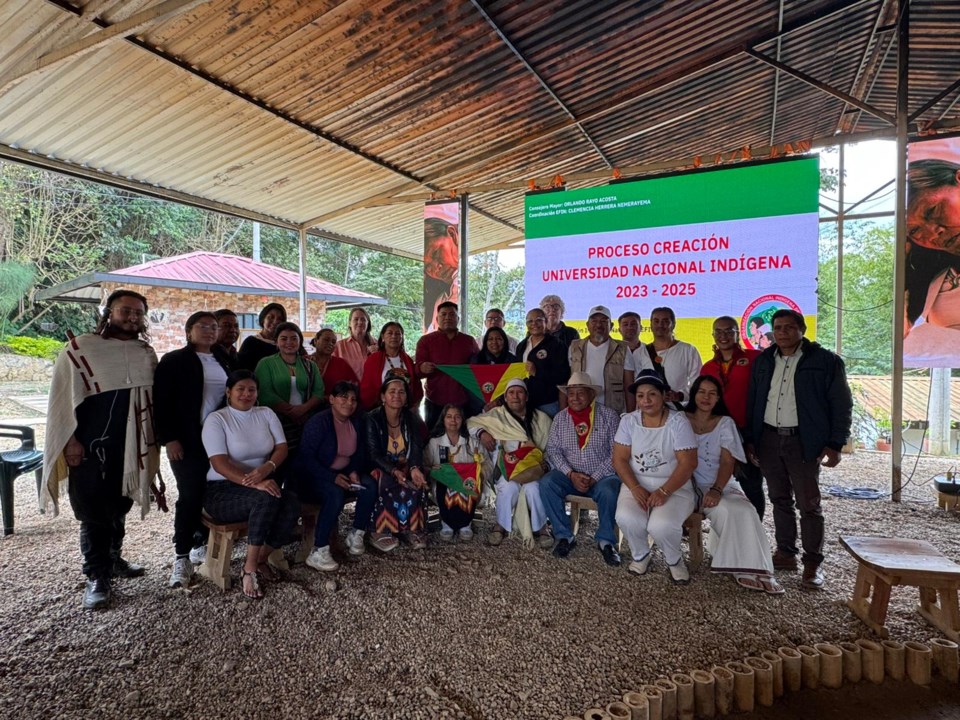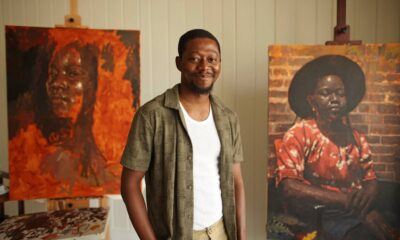Education
Algoma U Professor Drives Indigenous Education Initiatives in Colombia

Dr. Sheila Gruner, a professor at Algoma University, has embarked on a significant initiative to enhance Indigenous education in Colombia. She was invited to participate in community feedback sessions aimed at establishing the National Indigenous University of Colombia, a project designed to serve the educational needs of Indigenous communities across the nation.
The university’s formation represents a critical step in addressing long-standing educational disparities faced by Indigenous populations in Colombia. According to Dr. Gruner, these sessions are essential for gathering insights and perspectives from local communities. “It is vital that the voices of Indigenous people guide this process,” she emphasized during a recent session.
Focus on Community Engagement
Dr. Gruner’s involvement highlights the importance of community engagement in educational reform. The feedback sessions, which began in early 2023, are engaging various stakeholders, including community leaders, educators, and students. The aim is to tailor the university’s curriculum and structure to reflect the cultural and linguistic diversity of Colombia’s Indigenous groups.
The initiative has garnered support from various organizations dedicated to promoting Indigenous rights and education. The Colombian government, under President Gustavo Petro, has expressed a commitment to advancing educational opportunities for marginalized communities. This aligns with broader efforts to recognize and respect Indigenous cultures and languages within the national education system.
Challenges Ahead
Despite the positive momentum, establishing the National Indigenous University of Colombia faces significant challenges. Funding and resource allocation remain critical issues, as does the need for ongoing support from both governmental and non-governmental organizations. Dr. Gruner pointed out that “sustainable funding is crucial to ensure that the university can provide high-quality education and support.”
The success of this initiative will not only depend on financial backing but also on the active participation of Indigenous communities. They must feel ownership over the educational process to ensure that it meets their unique needs and aspirations.
As the feedback sessions continue, Dr. Gruner remains optimistic about the potential impact of the university. “This is a historic opportunity for Indigenous people in Colombia to shape their educational future,” she stated. The establishment of the National Indigenous University could provide a model for similar initiatives in other countries, showcasing the importance of inclusive and culturally relevant education.
In conclusion, the collaboration between Dr. Gruner and local communities signifies a promising development in the realm of Indigenous education in Colombia. As the project progresses, it aims to foster a more equitable educational landscape, promoting respect for Indigenous identities and knowledge systems.
-

 World3 months ago
World3 months agoScientists Unearth Ancient Antarctic Ice to Unlock Climate Secrets
-

 Entertainment3 months ago
Entertainment3 months agoTrump and McCormick to Announce $70 Billion Energy Investments
-

 Lifestyle3 months ago
Lifestyle3 months agoTransLink Launches Food Truck Program to Boost Revenue in Vancouver
-

 Science3 months ago
Science3 months agoFour Astronauts Return to Earth After International Space Station Mission
-

 Technology2 months ago
Technology2 months agoApple Notes Enhances Functionality with Markdown Support in macOS 26
-

 Top Stories1 week ago
Top Stories1 week agoUrgent Update: Fatal Crash on Highway 99 Claims Life of Pitt Meadows Man
-

 Sports3 months ago
Sports3 months agoSearch Underway for Missing Hunter Amid Hokkaido Bear Emergency
-

 Politics3 months ago
Politics3 months agoUkrainian Tennis Star Elina Svitolina Faces Death Threats Online
-

 Technology3 months ago
Technology3 months agoFrosthaven Launches Early Access on July 31, 2025
-

 Politics3 months ago
Politics3 months agoCarney Engages First Nations Leaders at Development Law Summit
-

 Entertainment3 months ago
Entertainment3 months agoCalgary Theatre Troupe Revives Magic at Winnipeg Fringe Festival
-

 Politics2 weeks ago
Politics2 weeks agoShutdown Reflects Democratic Struggles Amid Economic Concerns



















